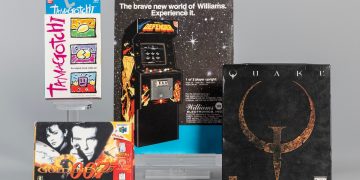Andy Gavin, one of the masterminds behind Naughty Dog, started the company with Jason Rubin back in 1986. Lately, he’s been a lively presence on LinkedIn, reminiscing about the firm’s early years. Recently, he shared some intriguing insights into how the company’s finances evolved over time, detailing the escalating costs of their early games. This spiraling expenditure eventually nudged the studio to join forces with Sony in 2000.
Gavin explained, “Our early 80s games were quite affordable, each costing under $50,000 to produce. However, by the time we worked on ‘Rings of Power’ from 1988 to 1991, budgets rose to around $100,000. That game brought in slightly more than its cost in post-tax profits by 1992. Fast forward to 1993, and we funneled that $100k into self-funding ‘Way of the Warrior.’ But ‘Crash Bandicoot’ was a different beast; by 1994 to 1996, it required a whopping $1.6 million to create. The financial demands only climbed from there, with ‘Jak and Daxter’ (1999-2001) exceeding $15 million. By 2004, the price for big hits like ‘Jak 3’ had skyrocketed to $45-50 million. And these figures have only kept climbing.”
These increasing costs were a significant factor in the decision to sell to Sony. As Gavin put it, “Managing these ballooning budgets on our own was incredibly stressful. Selling to Sony wasn’t just about financial security for Naughty Dog. It was about empowering the studio to continue making outstanding games without being drowned by the ever-increasing expenses, and the terrifying thought that one failure could be catastrophic.”
Gavin’s reflections stirred up a conversation in the comments, drawing perspectives from within the gaming sector. James Marcus, who is a senior artist at 1047 Games working on ‘Splitgate 2,’ chimed in, saying, “It’s unfortunate that expenses have skyrocketed so much. This environment has left too many developers hesitant to take creative risks or feeling compelled to sell to big corporations for fear of financial disaster if a project flops.”
Nevertheless, being acquired by a giant like Sony isn’t solely about financial relief; it comes with its own set of challenges. Studios can face restructuring and layoffs, as seen when Naughty Dog was affected by Sony’s 2024 cutbacks. Another example is Firewalk Studios, known for making ‘Concord.’ They were acquired by Sony in 2023, but this move didn’t seemingly benefit the game’s or studio’s future much. Not long after releasing ‘Concord,’ the studio was abruptly shut down. So while joining forces with Sony has its advantages, it can also be a mixed blessing. Yet, the undeniable truth remains: AAA video game costs are continually on the rise.










![[PS5] Review of Lost Records: Bloom and Rage – Tape 2 [PS5] Review of Lost Records: Bloom and Rage – Tape 2](https://www.intergamerz.com/wp-content/uploads/2025/04/Complimentary-Game-Lost-Records-Bloom-and-Rage-PS5-Giveaway-North-360x180.jpg)






















![[Industry Direct] PHI Studio & Agog Invite Applications for a Four-Week Residency for Immersive Artists [Industry Direct] PHI Studio & Agog Invite Applications for a Four-Week Residency for Immersive Artists](https://www.intergamerz.com/wp-content/uploads/2025/05/Industry-Direct-PHI-Studio-Agog-Invite-Applications-for-a-360x180.jpg)












